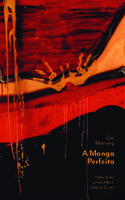A Manga Perfeita
Author(s)
Manning, Erin
Contributor(s)
Filho, Ernesto (other)
Greiner, Christine (other)
Collection
ScholarLedLanguage
PortugueseAbstract
"In 1994, at the age of twenty
five years old, when the terrible “shattering that comes with the
sexual assault ”doubled deep into her body and thoughts of
suicide were always around, Erin Manning wrote The Perfect Manga on a
almost feverish state: nineteen chapters in nineteen days, a kind
self-rescue operation where writing has become a way of
make (and feel) life in another way. Over these nineteen days, and
although not able to fully articulate to herself at the time,
Manning was written inside “a composition that asks what
otherwise life could be lived. ” And in the rhythms of this composition,
which was also a life, Manning was and is able to decline the category and
norm and immobility of the “victim” (while still understanding the inheritances
violence) in order to follow the more-than-myself as well as the
joy of “more than experience”
Twenty-five years
Manning later allows these earlier writings to find their
way around the world, which is a way of giving “voice to these
confused survival times ”while also asking us to
we share (and help support) such moments as readers,
that we consider “other ways of listening to the urgency of living”.
Republishing the book now is giving it a place in the world in a way that
honor your strength as something that is always beyond the claim of
anyone, even from Manning. In this sense, The Perfect Manga invites us, with Manning, to be in excess of ourselves, and also to consider, in Manning's words, “as
create conditions for living beyond the fierce belief of humanism that
we, the privileged, the neurotypical, the still unscathed, the
capable bodies, is that we hold the key to all perspectives in the
theater of life ”. Finally, Manning Perfect Manga and Manning's reflections on its composition ask us to consider “living
in the fierce celebration of a world invented by these ways of life that
tear the white, neurotypical colonial fabric of life as the
We know."" "Em 1994, aos vinte e
cinco anos de idade, quando o terrível “despedaçamento que vem com a
agressão sexual” dobrou-se profundamente em seu corpo e pensamentos de
suicídio estavam sempre por perto, Erin Manning escreveu A Manga Perfeita num
estado quase febril: dezenove capítulos em dezenove dias, uma espécie
de operação de auto-resgate, onde a escrita tornou-se uma maneira de
fazer (e sentir) a vida de outra forma. Ao longo desses dezenove dias, e
embora não capaz de articular completamente para si mesma na época,
Manning escreveu-se para dentro “de uma composição que pergunta de que
outra forma a vida poderia ser vivida”. E nos ritmos dessa composição,
que era também uma vida, Manning foi e é capaz de recusar a categoria e
norma e imobilidade da “vítima” (enquanto ainda compreende as heranças
da violência) a fim de seguir em vez disso o mais-que-eu assim como a
alegria do “mais-que da experiência no fazer”
Vinte e cinco anos
depois, Manning permite que esses escritos anteriores encontrem seu
caminho de volta ao mundo, o que é uma maneira de dar “voz a esses
momentos de sobrevivência confusos” enquanto também pede a nós, que
compartilhamos (e ajudamos a suportar) tais momentos enquanto leitores,
que consideremos “outras formas de escutar a urgência que é viver”.
Republicar o livro agora é dar-lhe um lugar no mundo de uma maneira que
honre sua força como algo que está sempre além da reivindicação de
qualquer um, mesmo de Manning. Nesse sentido, A Manga Perfeita nos convida, com Manning, a estar em excesso de nós mesmos, e também a considerarmos, nas palavras de Manning, “como
criar condições para viver além da crença feroz do humanismo de que
nós, os privilegiados, os neurotípicos, os ainda incólumes, os
corpos-capazes, é que guardamos a chave para todas as perspectivas no
teatro da vida”. Por fim, A Manga Perfeita e as reflexões de Manning a respeito de sua composição pedem que consideremos “viver
na feroz celebração de um mundo inventado por esses modos de vida que
rasgam o tecido colonial, branco, neurotípico da vida como a
conhecemos.”"
Keywords
memoir; sexual abuse; trauma; violence; embodiment; creative non-fiction; neurodiversityDOI
10.21983/P3.0270.1.00ISBN
9781950192601, 9781950192595OCN
1135855389Publisher
punctum booksPublisher website
https://punctumbooks.com/Publication date and place
Brooklyn, NY, 2019Imprint
3Ecologies BookClassification
Memoirs


 Download
Download